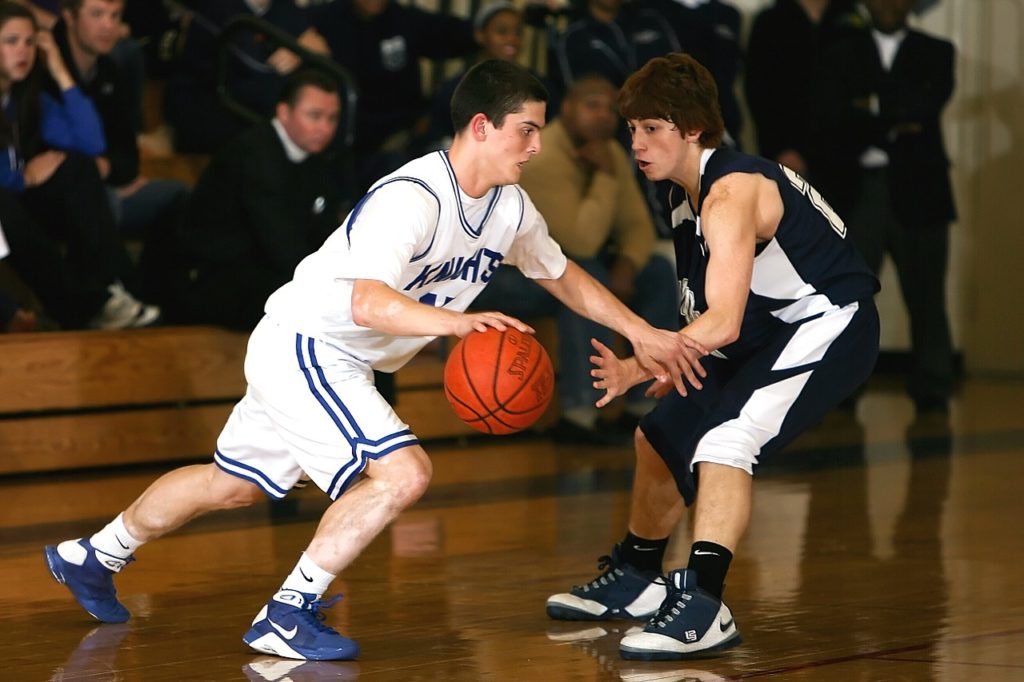A common concern for those thinking about straightening their smile with braces and those new to braces is whether it will affect their athletics. Orthodontic treatment doesn’t sideline you from any of your favorite sports, including football, soccer, baseball, wrestling, basketball, or hockey. You will however need to ensure that you properly protect your mouth and orthodontic work from harm. This means selecting an appropriate mouthguard.
The Importance Of Mouthguards For Athletes With Braces
Creed Orthodontics knows, if you play sports, you’re likely to be involved in an accident at some point. Without proper protection, these accidents can result in painful injuries.
Just as certain sports require a helmet to protect your head and brain or shin guards to protect your tibia bones, certain sports require a mouthguard to protect your teeth, gums, tongue, jaw, lips, and orthodontic devices.
Certain sports involve very close contact with other players. Some sports add variables like running, jumping, sliding, tackling, grappling, and other physical contact elements. All of these pose the risk for contact injuries and collision injuries with the ground, balls, other players, and objects involved in the field of play.
If you’ve ever had your lips accidentally pushed too hard against your braces, then you know that even minor force can be painful when it comes to tender skin against metal. It hurts. But, with sports, that force is often much greater due to the variables discussed above. And, it’s not just a matter of the pain and physical injury, contact and collision injuries can be damaging to your orthodontic equipment and treatment process.
Your braces are constantly exerting pressure upon certain targeted areas in your mouth to slowly move your teeth into proper alignment. When an outside force hits your braces and mouth, it can throw your treatment off course and extend your treatment time.
Therefore, it’s so crucial to protect your mouth and braces with a mouthguard when playing sports. Even if you’re playing sports recreationally or in a non-competitive capacity, we will likely still recommend an orthodontic mouthguard if there is the possibility of collision or impact injuries.
Is There a Certain Type of Mouthguard Athletes with Braces Should Wear?
Generally, mouthguards fall into two categories: orthodontic mouthguards and standard mouthguards. Let’s look at the difference so you can see why orthodontists commonly suggest an orthodontic mouthguard.
Standard Mouthguards
These can be bought off the shelves of pharmacies and sporting goods stores or ordered online. They come in different sizes, but their design is still a one-size-fits all approach.
While they may offer your braced teeth more protection than having nothing, they’re not designed for braces wearers. In fact, the addition of braces on your teeth can make a standard mouthguard very ill-fitting and uncomfortable.
Even traditional mouthguards that conform to your teeth upon placement aren’t ideal for braces wearers. There are two big reasons for that.
First, after their initial placement, traditional mouthguards don’t adjust. Yet, if you’re wearing braces, your teeth are constantly moving towards that ideal straight smile. So, your traditional mouthguard will eventually not be so conformed.
Second, traditional mouthguards are hard, unyielding plastic designs. This means that the pressure they exert can be counterproductive to your treatment by either exaggerating or counteracting the pressures being applied by your orthodontic devices.
The hardness also leaves some to all of the impact of a collision or contact to transfer onward to your orthodontic appliances, teeth, and jawbone. This leaves you at risk for serious injury and damage to your orthodontic treatment and devices.
Orthodontic Mouthguards
These are specially designed mouthguards for people who wear braces. In a nutshell, they remove all the negatives associated with a braces and traditional mouthguards.
They feature a softer and larger design that’s more comfortable for those undergoing orthodontic treatment with braces. The softer silicone design better enables the mouthpiece to absorb the shock of an impact to the mouth.
Because it’s flexible, it also doesn’t hinder nor exaggerate orthodontic movement of the teeth and is able to transition to a proper fit as your teeth move according to your orthodontic treatment plan.
Do You Need an Orthodontic Mouthguard?
If you play sports wearing braces, you don’t want to risk injury and costly disruptions to your orthodontic treatment. By choosing the right mouthguard, you can feel confident that you’re safely on your way to a straighter smile as you still enjoy all your normal sports and activities. Call Creed Orthodontics in Cypress, Texas today at (281) 256-3838 to schedule your orthodontic consultation and discuss the proper mouthguard for you and your sport.


